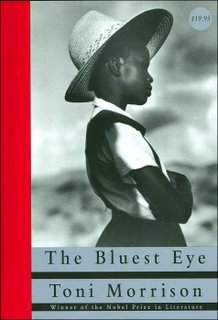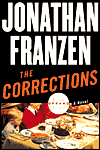
1200 pages. Let me write out the numbers to give the weight of that justice: Twelve Hundred pages, One Thousand and Two Hundred pages. If I bought another copy, I could use them to do bicep curls but, well, that's an expensive and not very durable (paperback) dumbell.
And my one copy was already almost destroyed. I must say that Rand does keep a reader on a short leash through that Grand Canyon of a trek. The world she creates feels to me like like being inside an Art Deco/Avante Garde painting. Everything is speed, motion, smooth bright color, commerce, technology, man-made machines, all in aerodynamic lines celebrating man's glory, his capacity for glory, the glory of man's mind and man's spirit. If it is a painting, then, it is an overly symbolic one where each object or tone/color is of the utmost importance, a philosophic work that struggles to fit the art form to an entire life view like stretching a tapestry over a wood and metal frame. Yes, that metaphor is apt because sometimes the tapestry (the art of the novel) wears thin with the insistant poking of the philosophic framework from under the surface.
To outline the plot, you should meet the cast of characters, all of whom are perfect examples of
Ubermenschen. They are not only incredibly intelligent (they carry on conversations that could never exist in the real world, even between Nobel Laureates) but also beautiful, their muscles carved of marble, their hair of silk, their expressive eyes of various gemstones. I'm exaggerating here but only slightly--I was a bit frustrated and, okay, attracted by this. I mean, how do some of them stay so gorgeous when they are described as doing nothing but sitting in an office to over-work for 12 hours days? Recipe for obesity if you ask me. But I digress. This cast of sexy supermen and women is pitted against the world at large, a world that wants to only get by, take what it can and work what it has to. I think that Rand taps into any reader's feeling on this point. We all have been in a situation where we feel that we are working harder and/or smarter than those around us yet our work is benefitting them just as much, if not more. Rand believes that modern society is made up of these intellectual and financial "
looters" who rob the talented and the virtuous of their work to make the rest of un-talented and un-working society function. These superpeople are
Atlas, holding the world on their shoulders because they have been brought up to believe it is their moral responsibility.
But what would happen if Atlas Shrugged?The back cover describes the novel as "part action-adventure" and the plot about this struggle can be classified that way, though it is not frenetic enough for Bruce Willis to ever get involved in the film-version (which would be, what? 6-8 hours long?). The action is slowed, and rightly so I think, to insert the philosophic converations, thoughts, ephiphanies. I like how this gives real world examples to the theories, concrete expressions of her lofty ideas. It gets tiresome, however, during the 60 page speech by one of the main heroes that basically repeats all the theories that had been related already but with different metaphors. Rand tries to break it up for the eye by chunking the text into lots of paragraphs but nobody is being fooled. 60 pages. And this was the hardest part of the book for me--get on with it! She is going to fall in love with him, and that guy is going to find out the truth, and the bad guy is about to step into this trap and, twiddle dee dee, I need to read this 60 pages before the plot progresses!
Upon completion of my task, I can say that I liked the novel. I can see why it is considered a classic. I like the
philosophy behind the novel, too, though I think parts of it are a bit dated. One can always strive to enact this world view in their personal life. In fact, I have often been thinking about it when reading or watching other stories, how her theory could relate to different character and circumstances. But economically, I don't know. I don't know if the free Capitalism she espouses would be wise or even feasible to enact. I think a lot of it stemmed from her own
childhood experience with Communism and perhaps her ideas would have changed along with the rest of the world's post 1989. But business is not my forte so I shall stay out of it all together.
A fantastic read. I will agree with another friend, who warned me before starting
Atlas Shrugged. He said, "I wanted to do nothing but read this book. I wanted to call in sick to work to read this book." And no, that's not exaggeration. Good thing that I get to read for 1-2 hours at work everyday, hmmm? Yay for nap time!!
 I am utterly ashamed. I hang my rose-blushed cheeks, my chin on chest. Beaten. Battered. Bashed in what I thought were my brains.
I am utterly ashamed. I hang my rose-blushed cheeks, my chin on chest. Beaten. Battered. Bashed in what I thought were my brains.








